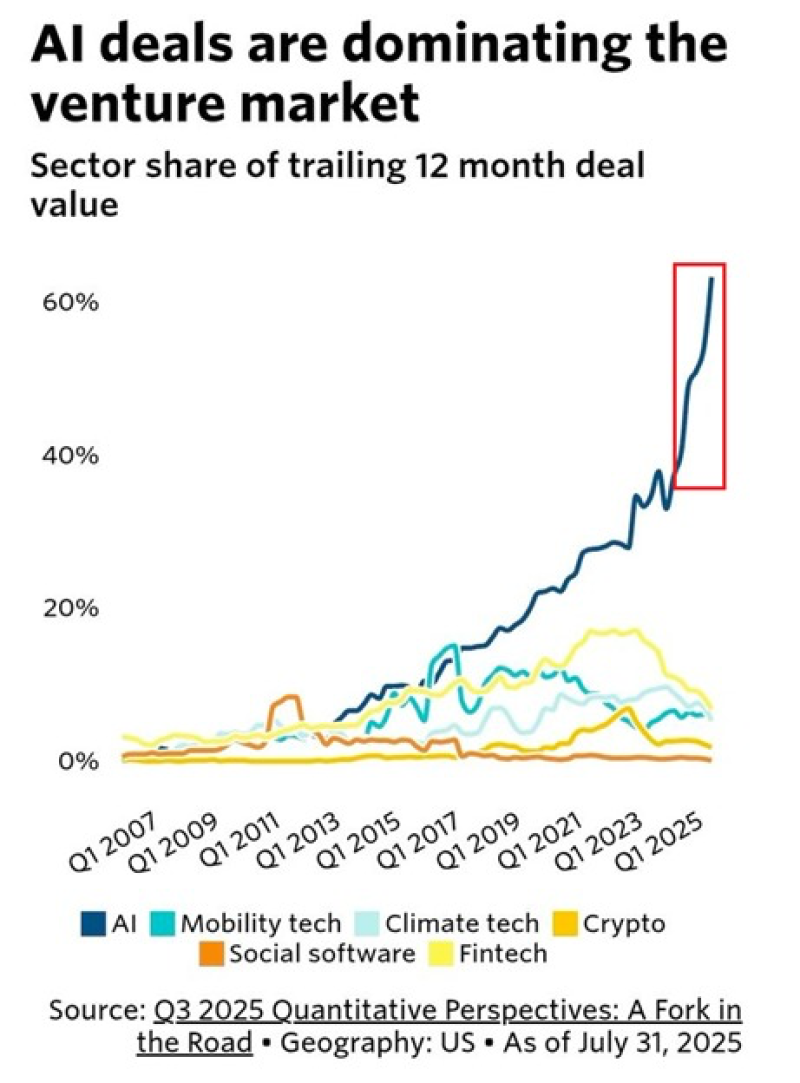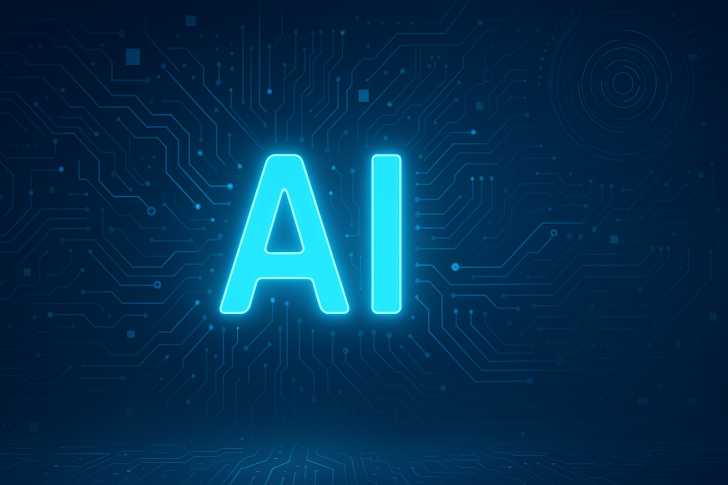The venture capital world is experiencing a seismic shift. Artificial intelligence has evolved from a promising technology into an absolute powerhouse that's rewriting the rules of startup funding.
AI Surpasses 60% of US Venture Deals
According to The Kobeissi Letter, AI startups have pulled in $192.7 billion in 2025 so far, making this the first year in history where more than half of all global venture capital flowed into a single technology category.

Artificial intelligence now commands over 60% of all venture deal value in the United States. This share has tripled since 2020, while once-dominant sectors like mobility tech, climate tech, crypto, and fintech have been pushed to the sidelines as capital rushes toward AI opportunities.
The shift started in late 2022 when ChatGPT showed the world what generative AI could do. The trend has only intensified through 2025, proving that investors aren't riding a hype wave—they're placing long-term bets on AI being the foundation of the next era of innovation.
Why Investors Are Doubling Down on AI
Several forces are driving this concentration of capital: the generative AI explosion brought tools like ChatGPT, Claude, and Gemini into everyday life, demonstrating real value to millions of users. At the same time, massive infrastructure demand means billions are being invested in GPUs, specialized chips, and energy-hungry data centers. Beyond the technology itself, industries from healthcare to finance and manufacturing are racing to integrate AI capabilities to cut costs and stay competitive.
Global venture capital funding in 2025 has reached $366.8 billion, with the US accounting for $250.2 billion. Out of that, AI alone captured nearly $193 billion. That's not just market leadership—that's complete dominance. AI has become the gravitational center of venture investment, pulling money and talent away from virtually every other sector.
When over 60% of US venture capital flows into AI, the ripple effects touch everything from semiconductors to cloud infrastructure to renewable energy projects powering massive data centers. We're likely to see continued investment in the entire ecosystem that supports AI—better chips, more efficient power solutions, and new computing architectures.
 Saad Ullah
Saad Ullah

 Saad Ullah
Saad Ullah


